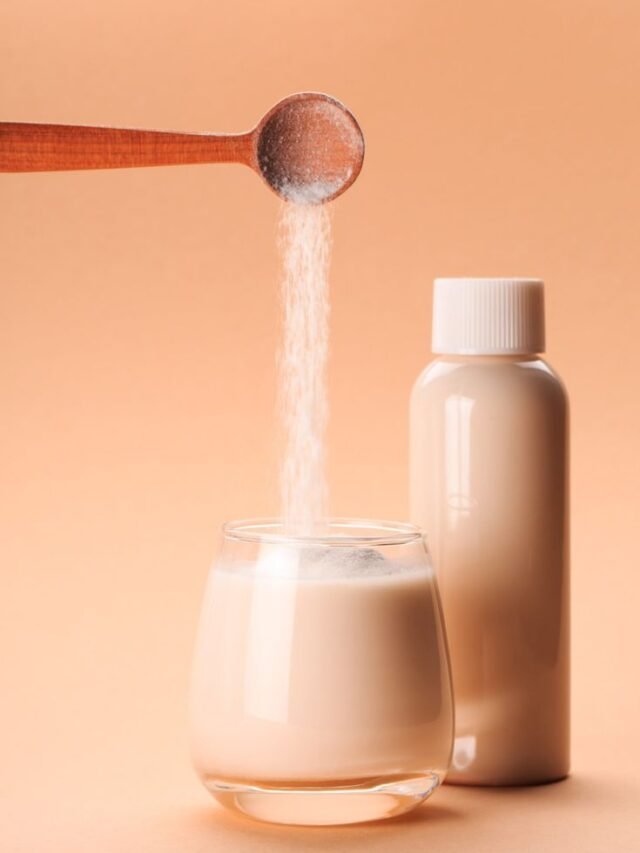Collagen stands as the predominant protein within our bodies, boasting a fibrous structure crucial for constructing connective tissue. As its name suggests, this tissue serves as the binding agent between various bodily structures, constituting a fundamental element in bones, skin, muscles, tendons, and cartilage. It fortifies tissues, rendering them robust and flexible, capable of enduring stretching.
In terms of dietary sources, collagen naturally abounds solely in animal-derived fare such as meat and fish, replete with connective tissue. Nonetheless, a spectrum of both animal and plant-based foods offers constituents essential for collagen synthesis within our systems.
As we age, our bodies undergo a gradual decline in collagen production, a process accelerated by factors like prolonged sun exposure, smoking, excessive alcohol consumption, and inadequate sleep and exercise. This decline precipitates alterations in the composition of collagen within the deeper layers of the skin, transitioning from a meticulously structured network to a disordered arrangement. Environmental influences can further exacerbate this degradation, diminishing the thickness and resilience of collagen fibers, ultimately manifesting as wrinkles on the skin’s surface.
Collagen Supplementation
The rising trend of collagen supplementation reflects a widespread desire for enhanced hair, skin, and nails, often seen as markers of youthful vitality. This burgeoning market promises a simple solution devoid of adverse effects, potentially reversing the signs of aging. Online interest in collagen has surged since 2014, indicating its growing popularity.
Initially incorporated into skincare products, doubts arose regarding the efficacy of topical collagen applications, as collagen primarily resides in the deeper skin layers. Its large molecular structure impedes penetration through the outer skin layers, and research hasn’t substantiated claims that collagen peptides, shorter chains of collagen, are more effective in this regard.
Oral collagen supplements, available in pill, powder, and certain food forms, have gained traction due to their perceived superior absorption rates. Marketed as collagen peptides or hydrolyzed collagen, these formulations undergo breakdown processes that facilitate easier absorption. They typically contain amino acids, the foundational components of protein, and may also include additional nutrients like vitamin C, biotin, or zinc, known for supporting skin and hair health.
Can You Eat Collagen?
There is a lack of research to show that eating collagen can directly benefit skin or joint health. When digested in the stomach, collagen is broken down into amino acids, which are then distributed wherever the body most needs protein. Still, many foods that support collagen production are generally recommended as part of a healthful eating plan.
Food containing collagen
- Foods abundant in collagen include tough meat cuts containing ample connective tissue, such as pot roast, brisket, and chuck steak. However, a sustained high consumption of red meat isn’t advisable for long-term health and environmental sustainability. Collagen is also present in the bones and skin of both freshwater and saltwater fish.
- Bone broth, increasingly popular and prominently featured in soup sections, is heralded as a collagen-rich health food. The preparation entails simmering animal bones in water with a dash of vinegar to aid in dissolving the bone and releasing collagen and minerals, typically for a duration ranging from 4 to 24 hours. Nevertheless, the amino acid content can fluctuate between batches depending on bone types, cooking duration, and processing methods for packaged or canned versions.
- Gelatin, a derivative of collagen, forms through the prolonged boiling of animal bones, cartilage, and skin followed by cooling and solidification of the liquid. This breakdown of connective tissues yields gelatin. Collagen and its byproduct gelatin are often endorsed within specific dietary regimens like the paleo diet.
Healthy Lifestyle Habits That May Help
- Use sunscreen or regulate sun exposure (10-20 minutes of direct midday sunlight 3-4 times weekly suffices for most individuals to obtain adequate vitamin D).
- Ensure sufficient sleep, aiming for 7-9 hours nightly for optimal health.
- Steer clear of smoking and exposure to secondhand smoke.
- Manage stress levels to prevent chronically elevated cortisol, which can inhibit collagen production.
- While the precise relationship between exercise and skin health remains uncertain, some research suggests that physical activity may decelerate cellular processes associated with skin aging.

